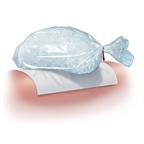ThisisPatientEngagementcontent
Chest Wall Pain
To download the Ukraine translated version, please click the link below
Chest wall pain is pain in or around the bones and muscles of your chest. Sometimes, an injury causes this pain. Excessive coughing or overuse of arm and chest muscles may also cause chest wall pain. Sometimes, the cause may not be known. This pain may take several weeks or longer to get better.
Managing pain, stiffness, and swelling

Activity
General instructions

These symptoms may represent a serious problem that is an emergency. Do not wait to see if the symptoms will go away. Get medical help right away. Call your local emergency services (911 in the U.S.). Do not drive yourself to the hospital.
This information is not intended to replace advice given to you by your health care provider. Make sure you discuss any questions you have with your health care provider.
Cookies are used by this site. To decline or learn more, visit our cookie notice.
Copyright © 2025 Elsevier, its licensors, and contributors. All rights are reserved, including those for text and data mining, AI training, and similar technologies.